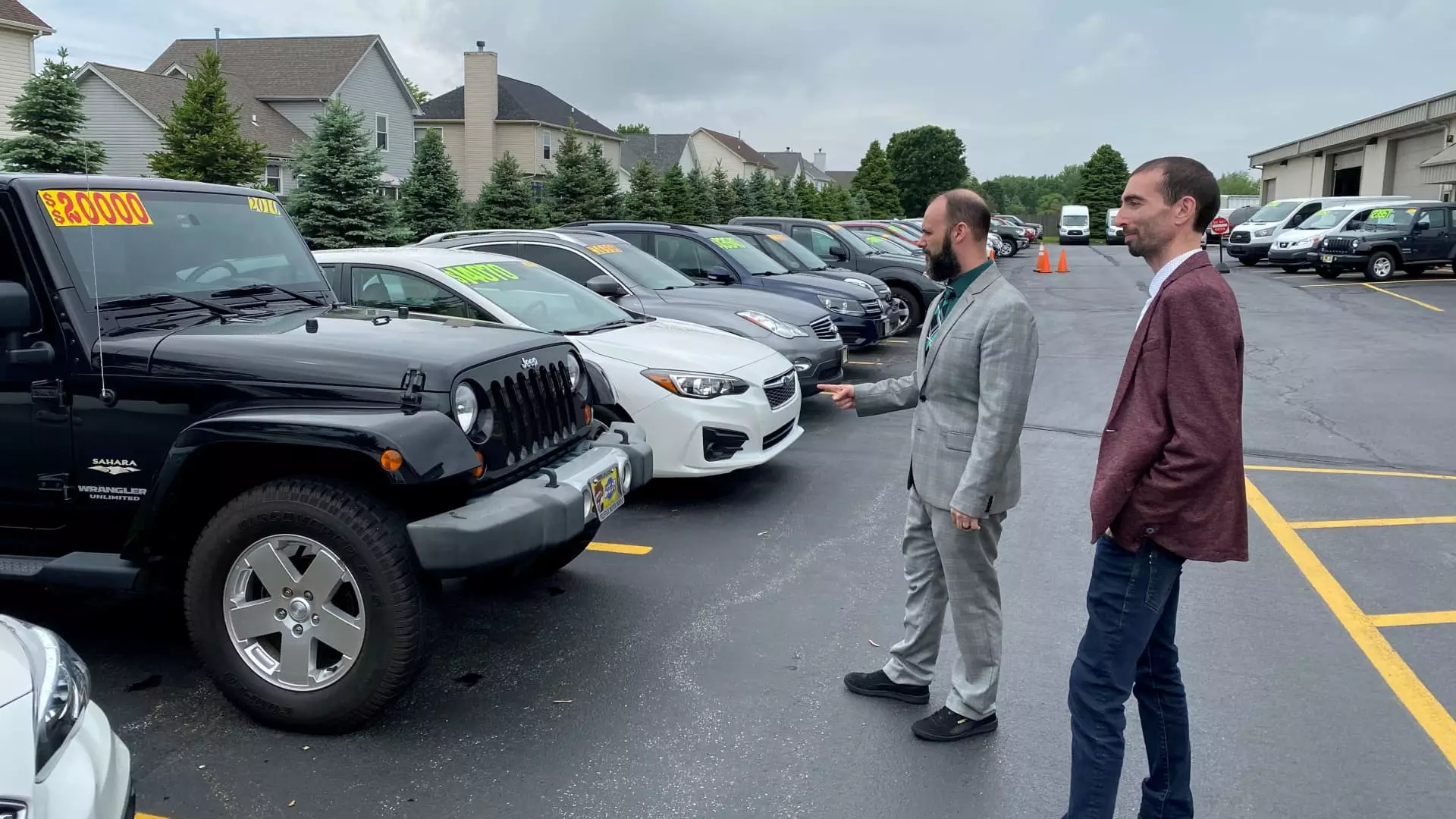As the U.S. automotive industry approaches 2025, a complex interplay of political dynamics, economic factors, and evolving consumer preferences is shaping the sentiments of car dealers across the nation. Recent data from Cox Automotive indicates that while dealers are experiencing a wave of renewed optimism following the recent U.S. presidential election, there remains considerable trepidation regarding the future of electric vehicle (EV) sales. With President-elect Donald Trump assuming leadership once again, dealers appear cautiously optimistic about traditional sales. Yet, their apprehensions concerning electric vehicles reveal deeper concerns about government policies that could significantly impact market stability.
Cox’s “Q4 2024 Dealer Sentiment Index” suggests that the optimism is reflected in the overall market outlook score, which rose to 54, indicative of a growing confidence among dealers regarding strong future conditions. This sentiment can be partially attributed to a stabilizing political landscape. However, looming concerns about the new administration’s approach to environmental policies—which could result in reduced federal incentives for EV purchases—elevate the anxiety surrounding electric vehicle sales. The survey revealed that many dealers anticipate a decline in EV sales in the near term, fearing that potential reductions in federal subsidies like the $7,500 tax credit could disincentivize buyers.
According to Cox Chief Economist Jonathan Smoke, the correlation between tax credits and market performance is clear. “Feedback indicates that tax incentives are crucial not only for new EV markets but also for the used car segment,” he noted. In a market where cash flow and government support may become tenuous, dealers are left to grapple with an uncertain future devoid of robust backing for electric vehicles.
Despite the challenges in the EV segment, the overall sentiment index has shown a notable increase from previous quarters, with figures rising from 42 to 54 in just a few months. This upward trend points toward a more favorable outlook for traditional auto sales as dealers anticipate less political unpredictability and an easing of interest rates. However, it is crucial to recognize that while the index indicates a majority of dealers maintain a positive view, a current score of 42 still suggests that many feel the overall market remains fragile.
Interestingly, while the automotive landscape appears to garner upward momentum, dealers are keeping a watchful eye on how federal regulations on emissions and fuel efficiency might shift with Trump back in power. Such shake-ups could further complicate an already intricate market, particularly as consumers increasingly pivot to electric vehicles, spurred by sustainability concerns and new technologies.
The survey also highlights a significant decline in the number of dealers who feel that the political climate is adversely impacting their business—dropping from 44% to 35%. This shift indicates a growing sense of stability and relief among dealership owners, as they adjust their expectations for the upcoming quarters. Premium automakers like Tesla have set the tone for electric vehicle innovation, leading to heightened consumer curiosity and growing demand. However, without strong federal support for EV incentives, many dealers fear a halt in the momentum for electric transitions.
The performance of publicly traded auto dealer stocks in 2024 displays a conspicuous positivity, with leading firms like AutoNation and Lithia Motors enjoying upward stock trends. The ongoing high prices in both new and used car markets contribute to this upbeat performance, yet underlying uncertainty about future EV policies persists, threatening to stifle holistic growth in the sector.
As we venture further into 2025, the duality of optimism and apprehension among U.S. car dealers paints a complex picture. While there are positive indicators suggesting a happier trajectory for traditional sales, the looming uncertainty surrounding electric vehicles presents formidable challenges. Stakeholders in the automotive industry must now navigate this volatile landscape, balancing traditional revenues against the burgeoning appeal of electric mobility while closely monitoring governmental policies that could disrupt the entire ecosystem. The road ahead may be fraught with risks, but it also offers opportunities for growth with the right strategic approach. As the landscape evolves, it will be imperative for dealers to adapt and innovate to ensure their profitability amidst the shifting tides of consumer demand and regulatory reform.

